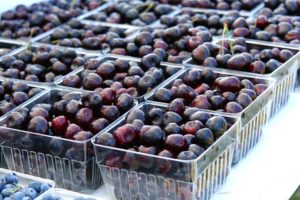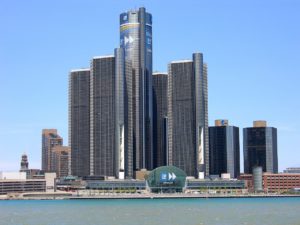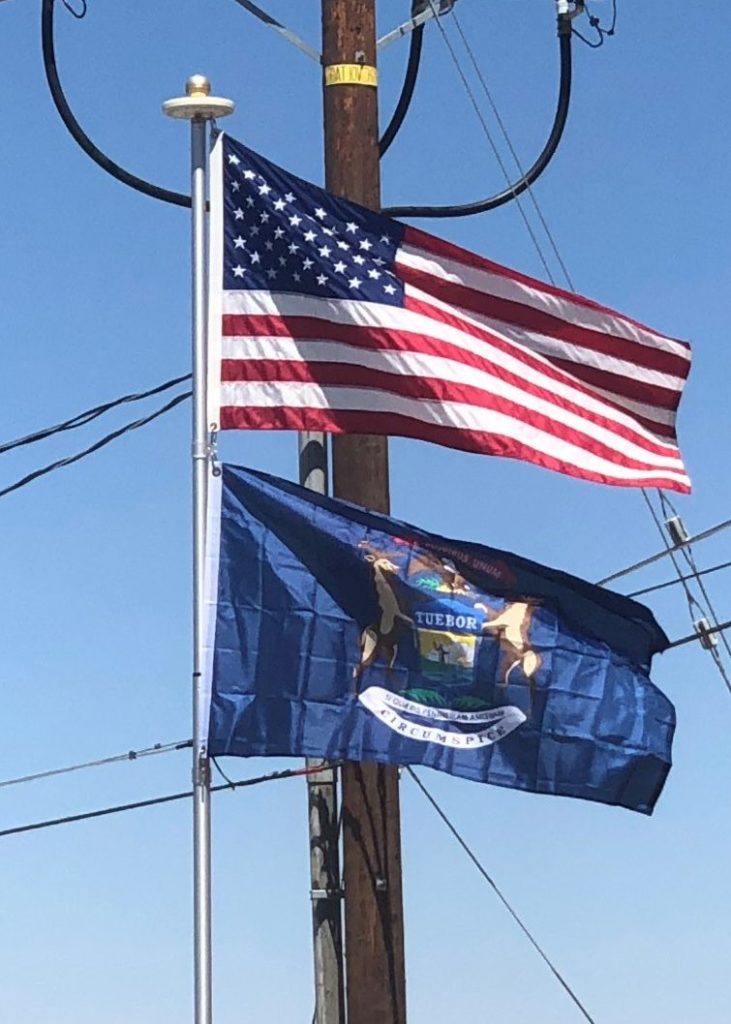As of 2002, Michigan ranked fourth in the U.S. in high tech employment with 568,000 high tech workers, which includes 70,000 in the automotive industry. The state is an important source of engineering job opportunities. The domestic auto industry accounts directly and indirectly for one of every ten jobs in the U.S.
Agriculture:
Michigan is the leading U.S. producer of tart cherries, blueberries, pickling cucumbers, navy beans and petunias.
A wide variety of commodity crops, fruits, and vegetables are grown in Michigan, making it second only to California among U.S. states in the diversity of its agriculture. The most valuable agricultural product is milk. Leading crops include corn, soybeans, flowers, wheat, sugar beets, and potatoes. Livestock in the state included 1 million cattle, 1 million hogs, 78,000 sheep and over 3 million chickens. Livestock products accounted for 38% of the value of agricultural products while crops accounted for the majority.
Michigan is a leading grower of fruit in the U.S., including blueberries, tart cherries, apples, grapes, and peaches.

Plums, pears, and strawberries are also grown in Michigan. These fruits are mainly grown in West Michigan due to the moderating effect of Lake Michigan on the climate. There is also significant fruit production, especially cherries, but also grapes, apples, and other fruits, in Northwest Michigan along Lake Michigan. Michigan produces wines, beers and a multitude of processed food products. Kellogg’s cereal is based in Battle Creek, Michigan and processes many locally grown foods. Thornapple Valley, Ball Park Franks, Koegel Meat Company, and Hebrew National sausage companies are all based in Michigan.
Michigan is home to very fertile land in the Saginaw Valley and “Thumb” areas. Products grown there include corn, sugar beets, navy beans, and soybeans. Alfalfa, cucumbers, and asparagus are also grown.
Tourism:
Michigan’s tourists spend $17.2 billion per year in the state, supporting 193,000 tourism jobs. Destinations draw vacationers, hunters, and nature enthusiasts from across the United States and Canada. Michigan is fifty percent forest land, much of it quite remote. The forests, lakes and thousands of miles of beaches are top attractions. Event tourism draws large numbers to occasions like the Tulip Time Festival and the National Cherry Festival.
Tourism in metropolitan Detroit draws visitors to leading attractions, especially The Henry Ford, the Detroit Institute of Arts, the Detroit Zoo, and to sports in Detroit. The metro area offers four major casinos, MGM Grand Detroit, Greektown, Motor City, and Caesars Windsor in Windsor, Ontario, Canada.

Hunting and fishing are significant industries in the state. Charter boats are based in many Great Lakes cities to fish for salmon, trout, walleye, and perch.
Michigan’s Department of Natural Resources manages the largest dedicated state forest system in the nation. The forest products industry and recreational users contribute $12 billion and 200,000 associated jobs annually to the state’s economy. Public hiking and hunting access has also been secured in extensive commercial forests. The state has the highest number of golf courses and registered snowmobiles in the nation.
